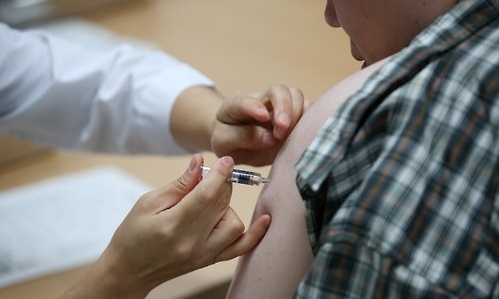 |
| Yonhap |
About 60 percent of South Koreans who visit areas with a high risk of disease do not receive the necessary vaccinations before leaving the country, the Korea Centers for Disease Control and Prevention said Sunday.
Upon the request from the KCDC, the Samsung Medical Center in Seoul surveyed some 1,641 Korean travelers at different locations, including the Incheon International Airport and general hospitals, from July to December last year. Among the participants only 35.7 percent of the travelers said they were vaccinated before leaving for their destinations.
Among the vaccinated travelers, the highest proportion of them, 72.4 percent, were vaccinated for yellow fever, a disease that is carried by mosquitoes and can lead to liver failure and death. Also, 29.8 percent of them received DPT vaccine – a class of combination vaccines against three infectious diseases: diphtheria, pertussis and tetanus.
Among the diseases that are preventable by being vaccinated, typhoid fever was the most common disease contracted by Korean travelers. The largest number of patients contracted the disease during and after visiting India. However, of 214 surveyed travelers who traveled India or Bangladesh last year, only 27 of them, 12.6 percent, were vaccinated for typhoid before visiting.
In 2014, a total of 400 Koreans contracted infectious diseases while traveling overseas. Among them, 80.7 percent became ill during and after visiting countries in Asia. The largest number of patients, 93, occurred among those who visited the Philippines, followed by those who visited Indonesia (35) and India (29).
Among the 400 cases, 41 percent of them were those who contracted Dengue fever, a mosquito-borne tropical disease, although no Dengue vaccine is available in Korea. From 2011-2015 at total of eight Koreans died after contracting infectious diseases overseas. Among them, seven of them died of malaria — a life-threatening disease caused by parasites transmitted by infected mosquitoes which also has no available vaccine.
By Claire Lee (dyc@heraldcorp.com)

